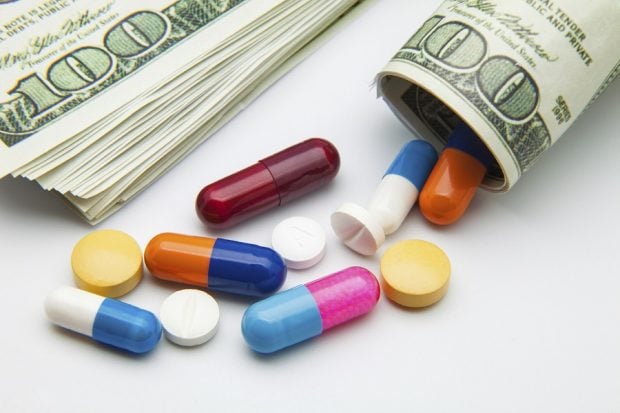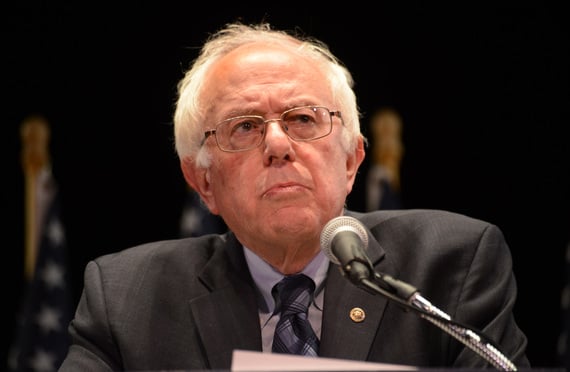 Under the proposal, safe-harbor protection would be eliminated forrebates drugmakers pay to pharmacy-benefit managers, Medicare PartD plans and Medicaid managed-care organizations. (Photo:Shutterstock)
Under the proposal, safe-harbor protection would be eliminated forrebates drugmakers pay to pharmacy-benefit managers, Medicare PartD plans and Medicaid managed-care organizations. (Photo:Shutterstock)
The Trump administration proposed ending a complex system ofdrug rebates that influence tens of billions ofdollars in U.S. pharmaceutical spending, a move that could upendthe relationship between drugmakers and pharmacy benefits middlemen.
|The proposal, a long-awaited part of the administration's planto target high list prices of drugs, would ban rebates paid bydrugmakers to pharmacy benefit managers, or PBMs, in governmentprograms like Medicare.
|Related: Pfizer CEO predicts an end to drugrebates
|Those rebates have been called anticompetitive by critics, whoblame them for forcing many patients to pay more out of pocket.Under the administration proposal, rebates would instead be passedalong directly to customers.
|The proposal comes ahead of President Donald Trump's State ofthe Union address scheduled for Tuesday, handing him a potentialwin on drug pricing — a major issue for both parties. The measure,released by the Department of Health and Human Services Thursday,would roll back so-called safe-harbor protections for such rebates,which kept them from running afoul of federal antikickback laws.The plan isn't final and will be subject to a 60-day period forpublic comment.
|The changes are “potentially devastating to the current pharmaecosystem,” said Eric Coldwell, an analyst with Baird EquityResearch. “The U.S. health-care system is a sandcastle and the tideis coming in.”
|Shares of major drug-plan providers fell. CVS Health Corp.,which oversees drug benefits for more than 90 million Americans,fell 2.4 percent in late trading in New York, and Cigna Corp.,which last year bought PBM giant Express Scripts, declined 1.4percent.
|Drugmakers pay rebates to insurers and PBMs in exchange forpreferred status with those plans' customers. Some of those rebatesgo toward insurance premiums, while the middlemen keep some forthemselves. The pharmaceutical industry has said PBMs preferhigher-priced drugs so they can negotiate bigger rebates and pocketmore of the money.
|In a statement announcing the proposal, HHS Secretary Alex Azarblasted PBM rebates as “a hidden system of kickbacks to middlemen”that increases drug costs for Americans every day.
|“This proposal has the potential to be the most significantchange in how Americans' drugs are priced at the pharmacy counter,ever, and finally ease the burden of the sticker shock thatmillions of Americans experience every month for the drugs theyneed,” Azar said in a statement.
|Reporting by Bloomberg News over the past three years hasexamined a variety of pricing practices at PBMs that have beencriticized by politicians and others for making it hard to tellwhere the money is going. In addition to the debate over rebates,PBMs also are under scrutiny over a practice known as spreadpricing, a contractual arrangement that allows PBMs to paypharmacies one price for a generic drug while charging higherprices to their health plan customers.
|CVS said drugmakers were to blame for drug costs. “While PBMshave become a convenient target in the fight against skyrocketingdrug costs, in reality they serve as a last line of defense for theconsumer,” the company said in a statement.
|Brian Henry, a spokesman for Cigna, said that rebates had helpedkeep premiums down overall. “It is short-sighted to look at onecomponent of our offering as having a disproportionate impact onour business model,” Henry said in an email.
|Under the proposal, safe-harbor protection would be eliminatedfor rebates drugmakers pay to pharmacy-benefit managers, MedicarePart D plans and Medicaid managed-care organizations. A new safeharbor would be created for rebates on drug discounts offereddirectly to patients, as well as fixed-fee service arrangementsbetween drugmakers and PBMs. Without safe-harbor protections,rebate money pocketed by PBMs could be considered an illegalkickback.
|Congress
While the out-of-pocket cost for many people picking up drugs atthe pharmacy would decline, the premiums they pay for coveragewould rise. Premiums for Medicare drug plans under the proposalcould increase anywhere from 8 percent to 22 percent while averagecosts patients pay out of pocket would fall 9 percent to 14percent, according to the Department of Health and HumanServices.
|It would be up to Congress to write new laws banning rebates incommercial plans that cover most working-age Americans, and thereception on Capitol Hill was mixed. In the Democrat-controlledHouse of Representatives, the chairmen of two key committeesoverseeing health care criticized the proposal.
|“The majority of Medicare beneficiaries will see their premiumsand total out-of-pocket costs increase if this proposal isfinalized,” Ways & Means Committee Chairman Richard Neal ofMassachusetts and Energy and Commerce Committee Chairman FrankPallone of New Jersey said in a joint statement. “We are concernedthat this is not the right approach.”
|House Speaker Nancy Pelosi likewise urged Trump to work withlawmakers on drug costs.
|“President Trump must work with Congress to deliver the real,tough legislation needed to actually drive down the price ofprescription drugs for seniors and families across America.” shesaid in a statement criticizing the plan.
|The Pharmaceutical Care Management Association, an industrygroup for PBMs, said it was reviewing the proposed rule.
|“We stand ready to work with the administration to achieve ourshared goal to reduce high drug costs,” PCMA Chief ExecutiveOfficer JC Scott said in a statement.
|The Pharmaceutical Research and Manufacturers of America, themain drug industry trade group, applauded the move. The proposalwould “fix the misaligned incentives in the system” that now resultin insurers and PBMs favoring medicines with high list prices,PhRMA CEO Stephen Ubl said in a statement.
|Read more:
- Express Scripts' new formulary: A viablealternative to rebates or smoke and mirrors?
- Drug rebate bubble: Will itburst?
- CVS's 'net new pricing' model brings transparencyto drug rebates
Copyright 2019 Bloomberg. All rightsreserved. This material may not be published, broadcast, rewritten,or redistributed.
Complete your profile to continue reading and get FREE access to BenefitsPRO, part of your ALM digital membership.
Your access to unlimited BenefitsPRO content isn’t changing.
Once you are an ALM digital member, you’ll receive:
- Critical BenefitsPRO information including cutting edge post-reform success strategies, access to educational webcasts and videos, resources from industry leaders, and informative Newsletters.
- Exclusive discounts on ALM, BenefitsPRO magazine and BenefitsPRO.com events
- Access to other award-winning ALM websites including ThinkAdvisor.com and Law.com
Already have an account? Sign In
© 2024 ALM Global, LLC, All Rights Reserved. Request academic re-use from www.copyright.com. All other uses, submit a request to [email protected]. For more information visit Asset & Logo Licensing.








